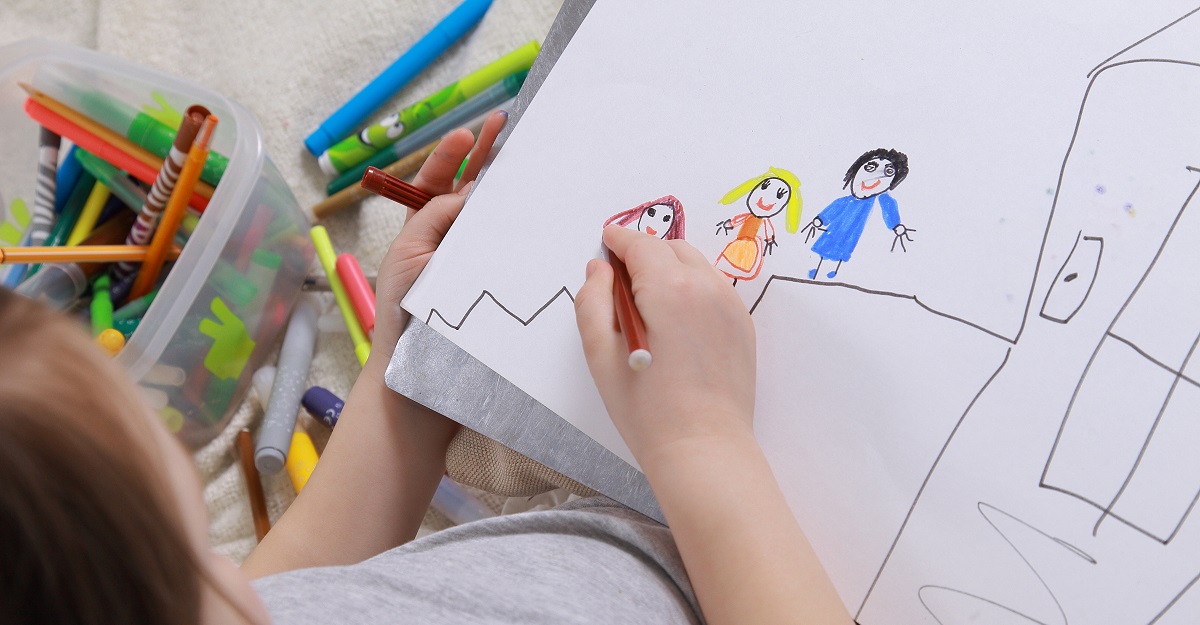What to Do When You Don’t Want the Divorce
Published By Justin Baksh, LMHC, MCAP
January 25, 2024

Maybe you thought everything was fine. One day you are going about your routine and, seemingly out of nowhere, you hear the words “I want a divorce.” Can this really be happening? Maybe, if you search deep into your psyche, you’ve felt things shift, but were in denial… everything will be ok. Or maybe you knew things were not going well, didn’t know what to do, but desperately hung onto hope. After all, don’t all couples go through ups and downs?
No matter what yesterday was like, though, today is different. Today, you are the spouse who is trying to stop a divorce.
Reigning in Your Emotions
The first matter at hand is to get control of your emotions. Divorce discussions can be emotionally charged, so maintaining calmness is key. This helps in thinking clearly and making rational decisions rather than reactive ones. Take some time to get yourself to a place where you feel stable before proceeding.
Time and space will allow both of you to reflect on the relationship and your feelings independently, which can be critical for healing and decision-making. It’s perfectly valid to say, “I can’t talk with you about this now. I need some time and space, I will contact you when I’m ready to discuss this further.” Don’t feel pressured to make a decision or take action immediately.
In the immediate aftermath of learning your spouse wants a divorce, you should strive to maintain your self-care routine. Eat well, try to sleep, and get some outdoor exercise. Do things you enjoy, whether it is taking a bubble bath, reading a good book, or going out with friends. Go away for a long weekend, if you can, to a place that is comforting for you.
It is also helpful to remember that you are the same person you always were. This is just something that is happening to you, not a pronouncement on your worthiness. You are always worthy of love in your own right, and what your partner says or feels does not alter this unchangeable truth. Can your marriage be saved? Maybe, but it takes two to make it work… And the only work you can do is on yourself.
Seeking to Understand
Think about the reasons your spouse gave for wanting a divorce. If you feel comfortable, ask the questions you need to get clarity… but end the conversation before it diverts to places you aren’t ready to go. Deep, honest introspection on your part will also help you get the core matters that brought the divorce into being.
The most common reasons for divorce, according to one study of couples who went through a pre-marriage Prevention and Relationship Enhancement Program (PREP), were:
Most Common Reasons for a Divorce
- Lack of commitment – 75%
- Infidelity – 60%
- Arguing/Conflict – 58%
- Married too young – 45%
- Financial problems – 37%
- Substance abuse – 35%
- Domestic violence – 24%
- Health problems – 18%
- Lack of support from family – 17%
- Religious differences – 13%
- Little or no premarital education – 13%
Shedding further light on the subject is a Forbes Advisor survey which shows that the most prominent reasons for divorce change as the marriage progresses.
How the Reasons for Divorce Change Over Time
For those who divorced within the first year of marriage, the majority (59 percent) said the reason was a lack of compatibility.
For years two through eight, the most common reason cited by respondents was a lack of family support, with over 43 percent indicating this was to blame for the demise of their marriage. This gives new meaning to the phrase when you marry a person, you marry their family.
Those whose marriages surpassed the eight-year mark more often cited serious issues such as an affair or a lack of intimacy as driving factors.
Here’s the good news: more than 95 percent said there was a chance their marriage could be saved.
Suggesting Couples Counseling
Sometimes a divorce pronouncement is not a death knell. It may be an indication that your spouse feels neglected or is angry about something. Maybe they are simply wondering aloud if this is the way to go.
If your spouse has any uncertainty about what they want, perhaps they will agree to counseling. Asking the question can be a way to see if they are open to the possibility of trying to save the marriage. In fact, suggesting counseling is a great litmus test to see if there is hope.
This is really important, however: Be ready for the answer and accept what is said.
If they aren’t willing to try counseling, don’t get stuck on trying to argue them into it. The bottom line is that you cannot control another person, how they feel, or what they do. Just like when they married you, they must decide that they do not want to live without you – or, in this case, they want to try to make it work – and take steps to make that happen.
So, if the answer is yes, they are willing to try counseling, then you have a direction. If not, you also have one. Either way, you are going to be okay (although you may not feel like it now).
What to Do if Your Spouse Says They Are Willing to Go to Counseling
If you got the answer you were hoping for, it is time to try marriage counseling, also called couples counseling. The tools and strategies for addressing issues in the relationship gained can be invaluable.
According to the American Association for Marriage and Family Therapy, marriage counseling is brief, with 12 sessions on average, and nearly nine out of 10 couples completing it within 50 sessions. It is also “designed with the end in mind“, focused on a solutions, and works toward specific and attainable goals.
Some of the things you tackle in marriage counseling are:

Improving Communication
Open, honest, and respectful communication is fundamental. Actively listening to your partner’s concerns and express your own in a non-confrontational manner are vital. Couples therapy provides a safe space in which to do this.

Changing Thoughts & Behavior
If there are specific beliefs, thoughts, or behaviors contributing to marital strife, your therapist will walk through these with you both. Doing your part by taking steps to change these thoughts and behaviors shows your commitment to improving the relationship.

Resolving the Past
Any disagreements, conflicts, or stalemates are uncovered and handled. Many times, the roots of our issues go back to childhood. Sometimes we find that we are replaying patterns we saw in our parents. Those are also brought to light and resolved as well.

Rebuilding Trust and Intimacy
Trust and intimacy are often the first casualties in a troubled marriage. In therapy and on your own, you will work toward rebuilding these through consistent, positive interactions and shared experiences.
At this point, you may be questioning if couples counseling is worth it. The answer is yes! The success rate is as high as 70 percent, as reported by the Journal of Marital and Family Therapy. In fact, 90 percent of those going through emotionally focused therapy experience significant improvement in their relationship. So, if you have a willing partner, attending marriage counseling is an excellent investment of your time.
What to Do if Your Spouse Insists on a Divorce
Now, on the other hand, your partner may have no interest in couples counseling or any other intervention. While the waters you are about to embark on can be turbulent and emotionally taxing, there are things you can do to smooth the way. Understanding the stages of recovery from divorce, going to individual therapy, and adopting effective coping mechanisms and strategies can significantly aid in managing the emotional upheaval of a divorce.
Understand the Emotional Stages of Divorce
Divorce is not just a singular event but a journey through various emotional stages, each carrying its unique challenges and opportunities for growth. Understanding these stages will make the healing process simpler and less painful.

Shock and Denial
Initially, there is often a sense of shock, disbelief, or denial, especially if the divorce was not anticipated. This phase serves as an emotional defense mechanism, helping to cushion the immediate blow of the separation.

Pain and Uncertainty
As the reality of the situation sets in, feelings of pain, fear, and uncertainty emerge. This stage can be overwhelming, as individuals grapple with the loss of their partnership and the uncertainty of their future.

Anger and Bargaining
It is common to experience anger, resentment, or even rage, at this stage of the process. Questions such as “Why me?” or “What can I do to fix things?” may surface. Bargaining with oneself or a higher power and seeking to reverse or escape the situation are also common.

Reflection and Depression
This stage involves deeper reflection and may be accompanied by feelings of loneliness and depression. It is a period marked by introspection about the relationship, its breakdown, and what it means for your identity and future.

Acceptance and Hope
Ultimately, there is a gradual movement towards acceptance. This does not mean you are happy about the situation, just that you understand it and are ready to move forward. It is a pivotal turning point; one where healing truly begins, and hope for a new chapter emerges.

Rebuilding and Growth
In this final stage, individuals start rebuilding their lives. This phase is characterized by a renewed sense of self, resilience, and often a reevaluation of personal values and life goals.
Take Advantage of Therapy
In the wake of a separation or divorce, therapy or counseling can play a pivotal role in the healing process. The journey of untangling and understanding one’s emotions in such a tumultuous period often necessitates professional guidance, which is where therapy comes in.
Benefits of Individual Therapy for Those Facing Divorce
- Reframing Negative Thought Patterns: One of the most significant benefits of therapy is its ability to help individuals identify and reframe negative thought patterns. A therapist can guide you through cognitive restructuring, a process that challenges and alters unhelpful thoughts which are often rooted in the trauma of a relationship breakdown. This practice will help you keep a more steady, positive outlook.
- Providing a Safe Space for Expression: Therapy offers a confidential and safe environment to express feelings that might be difficult to articulate elsewhere. This open expression is crucial for emotional unburdening and starting the healing process.
- Developing Coping Strategies: Therapists equip people with coping strategies that will be effective for their personality and circumstances. These strategies are designed to manage stress, anxiety, and depression that often accompany a divorce. Learning these techniques can empower individuals to handle their emotions more effectively.
- Understanding and Processing Emotions: Therapy aids in the understanding and processing of complex emotions. Whether it is grief, guilt, anger, or loss, a therapist can help in exploring these feelings deeply, understanding their origins, and finding healthy ways to process them.
- Building Resilience and Self-Esteem: Post-divorce, individuals often struggle with self-esteem and confidence. Therapy can be instrumental in rebuilding these aspects of self, helping individuals regain a sense of self-worth and resilience.
- Navigating Life Transitions: A therapist can also assist in navigating the practical and emotional transitions post-divorce, such as adjusting to single life, co-parenting, and forming new relationships. This guidance can ease the transition and promote a healthier adjustment to the circumstances of your new life.
Implement Coping Strategies
You can amplify the positive effects of your progress in therapy by implementing specific coping strategies. Think of them as a series of building blocks for your new life.
Coping Strategies for Separation and Divorce
- Acknowledge Your Feelings: A myriad of emotions come with separation or divorce. It is normal to experience confusion, frustration, anger, and sadness. Allow yourself to feel what you feel, without judgement. This is the first step in processing it all.
- Build a Network of Support: It is essential to gather a circle of supportive individuals around you, such as friends, family, or members of a support group. Spending time with those who understand with what you are going through can offer immense comfort. They create a secure environment for you to openly share your emotions and help you gain a broader perspective
- Engage in Self-Care: Make sure your physical and emotional needs are being met. Exercise regularly, eat a nutritious diet, be sure you get enough sleep, and spend time doing things that bring you joy and relaxation.
- Create a Routine: Establishing a daily routine can provide a sense of normalcy and stability during a time of change. It helps in structuring your day and keeping you grounded.
- Avoid Unhealthy Coping Mechanisms: Be careful not to let yourself fall into unhealthy habits such as excessive drinking, overeating, or self-isolation. Be mindful of these patterns and try to steer clear of them. Instead, focus on healthy coping strategies that promote healing and growth.
- Focus on the Future: It is important to process your emotions, but it is also vital to look forward. Set goals for yourself, whether they are career-oriented, are for your personal development, or are new hobbies you’ve always wanted to try. This helps in creating a positive outlook for the future.
The period following a divorce, particularly one you didn’t want, can paradoxically become a powerful catalyst for personal growth and self-improvement. This time, though inherently challenging, presents an opportunity to rediscover oneself and build a stronger, more fulfilled individual.
No Matter Where The Road Goes
Divorce, often perceived as a mere legal dissolution of marriage, is the entrance to a labyrinth of emotions, particularly when one party is reluctant or unprepared for this seismic shift in their life. The journey through an unwanted divorce can feel like navigating an unknown territory, marked by a spectrum of complex emotions – from profound sadness and confusion to a sense of betrayal and a lingering hope for reconciliation.
It’s important to remember that while you may be facing an unwanted divorce, there are steps you can take to potentially save your marriage. Empowering yourself with action, open communication, and counseling can make a significant difference, whether the divorce ultimately proceeds or not. Know that divorce is not the end of your personal journey.
In fact, as daunting as it may seem, it can also be a gateway to self-discovery and new beginnings. Divorce is a time to prioritize caring for yourself, embracing personal growth, and investing in your wellbeing. Remember, the end of a marriage does not define you; it is a chapter in your life that leads to new opportunities for learning and happiness.
Your journey may not have taken the path you expected, but it is a journey nonetheless, filled with potential for happiness and fulfillment. Stay hopeful, nurture your wellbeing, and keep moving forward toward a future that is still bright with possibilities.
- American Association for Marriage and Family Therapy. (2015). About Marriage and Family Therapists. Aamft.org.
- Bieber, C. (2023, August 15). Leading Causes Of Divorce: 43% Report Lack Of Family Support – Forbes Advisor. Www.forbes.com.
- Lebow, J. L., Chambers, A. L., Christensen, A., & Johnson, S. M. (2011). Research on the Treatment of Couple Distress. Journal of Marital and Family Therapy, 38(1), 145–168. https://doi.org/10.1111/j.1752-0606.2011.00249.x
- The Most Effective Couples Therapy, by Far | Psychology Today. (n.d.). www.psychologytoday.com.






